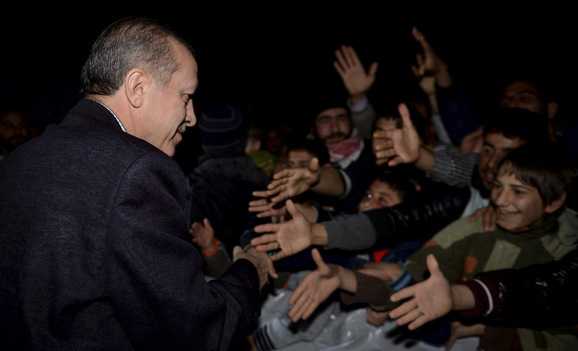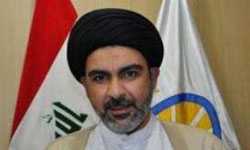Supporters of Hamas’ Gaza leader, Ismail Haniyeh, shout slogans against Israel in front of the cruise liner Mavi Marmara in Istanbul, Jan. 2, 2012. (photo by REUTERS/Osman Orsal )
The current woeful state of the once mutually beneficial Turkish-Israel ties resembles Humpty Dumpty after his proverbial fall. None of the king’s horses or of the king’s men have been successful so far in putting these ties back together again. This has not, however, stopped Israel from trying to come up with formulas aimed at appeasing Turkey. Ankara’s position nevertheless remains firm, with its preconditions for normalized ties almost writ in stone.
About This Article
Summary :
Semih Idiz reviews Turkish-Israeli ties and sees no incentive for Ankara to improve ties with Israel at this time.
Author: Semih Idiz
posted on : January 20 2013
|
Relations between the two countries, already strained over Israel’s “Operation Cast Lead” against Gaza in December 2008, plummeted after Israeli forces killed nine Turkish pro-Palestinian activists in May 2010. The Turks — one of them a US citizen also — were shot in international waters in the eastern Mediterranean by Israeli soldiers raiding the Mavi Marmara, a Turkish aid ship that was part of an international flotilla trying to force the Israel blockade of Gaza.
Turkey continues to wait for Israel to formally and unequivocally apologize over the incident, and is also demanding compensation for the killed Turks, as well as the raising of the siege of Gaza, before it considers improving ties with the Jewish state.
Israel, for its part, argues that the Turks on the Mavi Marmara were armed and hostile; a charge vehemently denied by the organizers of the international flotilla and Turkey. Not surprisingly, the right-wing government of Prime Minister Benjamin Netanyahu has refused to meet Turkish demands.
Israel has nevertheless sent out feelers, mostly through members of the Turkish media, for improved ties. The latest attempt came a few days ago from Israel’s deputy foreign minister, Danny Ayalon, who told daily Hurriyet that the manner in which the US and Pakistan had resolved a similar dispute provided a convenient blueprint for Israel and Turkey.
He was referring to the letter sent by the US to Pakistan after American jets mistakenly killed 24 Pakistani soldiers in November 2011 in an air raid. “I could consider resolving this problem by using the text of the US-Pakistan agreement,” Ayalon was quoted saying.
When asked if the letter he was proposing on the basis of the US letter to Pakistan contained an apology Ayalon said, “Yes. If you read the text of the (US) letter it is very clear to everyone.” Turkish diplomats sounded out by Al-Monitor, however, are not so sure.
They argued that Washington’s letter, while expressing regret over the Pakistani soldiers killed, nevertheless fell short of a full apology that could bring legal liability with it.
They also pointed to the fact that although former Israeli Foreign Minister Avigdor Lieberman has endorsed the US-Pakistani model, he has, nevertheless, said that this would not amount to a formal apology.
Ayalon, who is key a member of the Knesset for the nationalist “Israel Our Home” party, has insisted in the past — together with Lieberman — that the Turks on the Mavi Marmara were armed and dangerous and so there is no need to apologize to anyone over the incident.
Ayalon also gained notoriety among Turks for contributing personally to damaging Turkish-Israeli relations, after he insulted the Turkish ambassador in 2010 by inviting him to the foreign ministry, to be informed of Israel’s displeasure with Turkey, and seated him in a low chair, in front of reporters, while he took the high chair.
The move was widely considered to be a setup planned by Ayalon to willfully belittle Turkey, and was also criticized in Israel where many felt it was Israel’s image, and not Turkey’s, that had been harmed by a serious lack of diplomatic finesse.
What Ayalon is proposing now, however, is not good enough for Turkey, according to government sources, who say Ankara’s demands should be met without any ambiguity. Diplomats in Ankara say Israel is reluctant to provide the apology Turkey demands because this would amount to an admission of guilt, which could expose members of the Israeli armed forces to international court cases.
Meanwhile, a court in Istanbul began a trial in absentia in October 2012 against former Israel army Chief of Staff Gabi Ashkenazi, ex-naval chief Eliezer Marom, former head of military intelligence Amos Yadlin, and former head of the air force Avishai Lev, who are accused of masterminding the Mavi Marmara raid.
Israel has dismissed this as a “kangaroo court,” while Western diplomats in Ankara say the trial, whose legal basis is questionable, poses no risk for Israel given the September 2011 findings of a panel of inquiry commissioned by the UN Secretary General.
According to the “Palmer Panel,” Israel’s blockade of Gaza is “a legitimate security measure.” The panel also maintained that Israeli troops faced “significant, organized and violent resistance” on the Mavi Marmara, even though it added that boarding the ship and the use of substantial force was “excessive and unreasonable.”
Turkey, however, rejected these findings, arguing that the inquiry that counts is the one conducted by the UN’s Human Rights Council in 2010, which found Israel guilty on almost all counts. And there the matter rests today, with neither the US, nor any other country interested in resolving this dispute, having had any success in trying to normalize Turkish-Israeli ties.
What makes a settlement difficult is the fact that there is an asymmetrical situation in hand. Israel needs improved ties with Ankara much more than the other way around. The importance of improved ties with Turkey was also admitted to by Ayalon in his remarks to Hurriyet.
“Economically, strategically, and for other reasons, it is very important for Turkey and Israel to cooperate” he said pointing to the turmoil in the Middle East, and expressing his hope that 2013 will see Turkish-Israeli ties set on the right course.
However, a rapprochement with Israel, and especially one in which Ankara’s demands are not met, would be a political liability for Prime Minister Recep Tayyip Erdogan, not just at home, but also in the Middle East where his reputation among Sunni Arabs is running high. Put another way, there is no incentive for the Erdogan government to improve ties with Israel at the moment.
Meanwhile, the fact that Turkey recently lifted its objection to Israeli participation in certain NATO activities in 2013 appears to have raised hopes among Israeli officials for improved ties. Many Israelis see this resulting from a trade-off between Turkey and NATO after Ankara requested Patriot missiles against any missile attacks from Syria.
Officials in Ankara sounded out by Al-Monitor disagreed. They argued that there was no such trade-off, since NATO would have harmed its image as an alliance if it failed to respond to a request by a strategic ally in order to please a non-member country.
They also emphasized that Turkey has not given NATO a carte blanche in its dealings with Israel.
Even if Turkey’s NATO allies are keen for a rapprochement between Turkey and Israel, it seems unlikely that this will come about until Ankara’s demands are met by Israel. Given Israel’s hard-line stance, despite its search for a formula that might appease Turkey, it is not difficult to see that Turkish-Israeli ties will remain in the doldrums for the foreseeable future.
But even if Humpty Dumpty could be put together somehow, it appears, from today’s perspective, that the cracks will continue to show, the shell having been broken once.
Semih İdiz is a contributing writer for Al-Monitor’s Turkey Pulse. A journalist who has been covering diplomacy and foreign-policy issues for major Turkish newspapers for 30 years, his opinion pieces can be followed in the English language Hurriyet Daily News, he can also be read in Taraf.
Read more: https://www.al-monitor.com/originals/2013/01/turkey-israel-flotilla-gaza.html#ixzz2IbrTJDVQ




